The Roman Army vs the Britons
£3.00
It is 55 BC and Julius Caesar is in Gaul (France). He is thinking of invading Britain. This lesson looks at four of the reasons why Caesar wanted to invade Britain. It also looks at the military strength of the Roman army compared to that of the Britons and it finishes by looking at what life was like for Britons at the time of Caesar’s invasion.
As well as English and history skills the Evidence-Based Learning skills developed in this lesson include collaborative learning and thinking skills. This lesson also offers pupils the opportunity to master metacognition.
Description
Each evidence-based learning (EBL) Roman history resource in this set is a complete lesson which uses the history curriculum as a framework through which each of the eight EBL skills can be mastered. Each resource has “mastering” one EBL skill as its central focus and all eight EBL skills are covered more than once in these lessons.
All eight EBL skills are better gained working with a partner so much of the work in these lessons is collaborative. These resources will ensure that pupils can master and use EBL skills regardless of their ability.
Each Roman history lesson will develop a single EBL skill through:
1) A “Before You Start” page that introduces the EBL skill.
2) Opportunities to master this skill during the lesson.
3) An “After You Finish” page that offers pupils the chance to evaluate their learning experience (of the lesson and the EBL skill) and to identify their next step in using the EBL skill.
The skills in bold below are all the EBL skills developed in this Romans lesson. Click on each skill to learn more about that skill.
- Collaboration
- Thinking Skills
- Peer Assessment
- Peer Teaching
- Self-Assessment
- Metacognition
- Self-Regulation
- Independent Learning
1 review for The Roman Army vs the Britons
Only logged in customers who have purchased this product may leave a review.
Related products
-
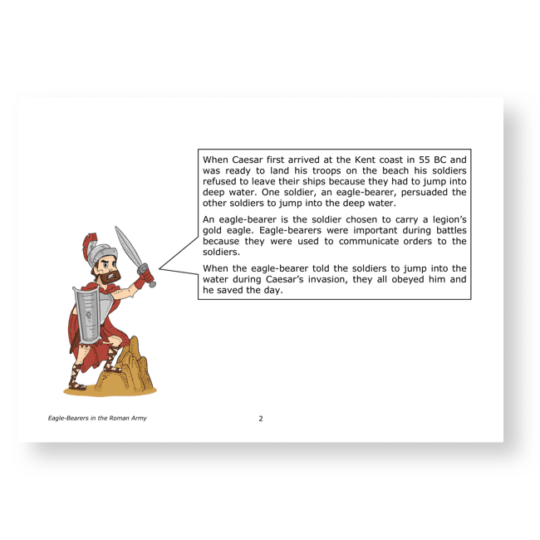
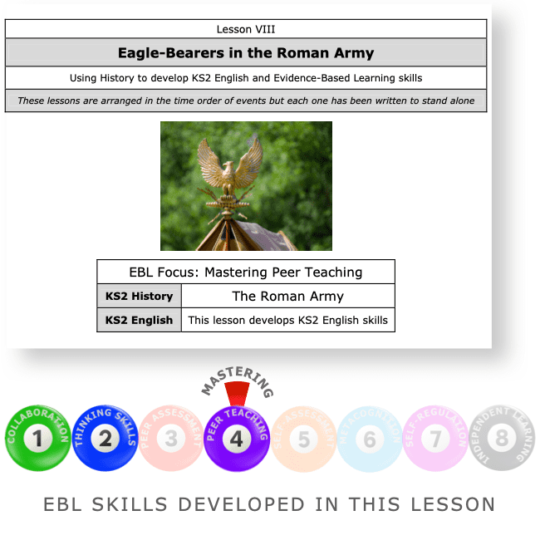
Eagle-Bearers in the Roman Army
£3.00 Add to basket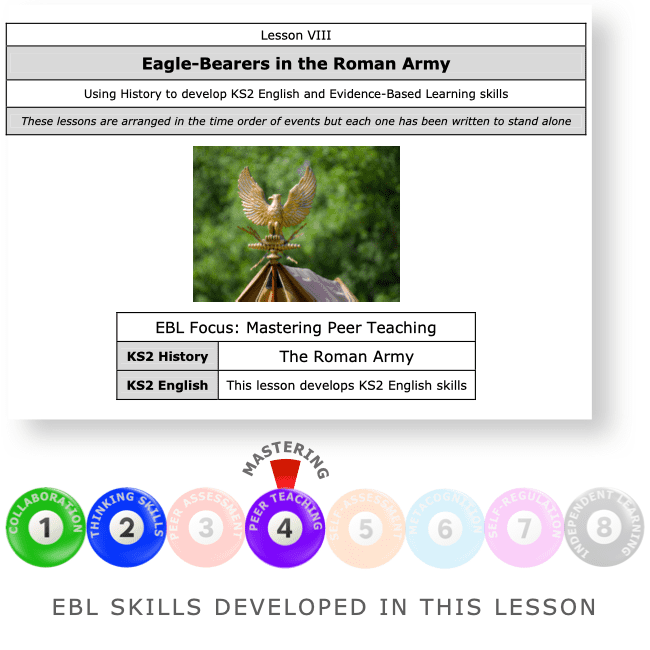 £3.00Add to basket
£3.00Add to basketWhen Caesar first arrived at the Kent coast in 55 BC and was ready to land his troops on the beach his soldiers refused to leave their ships because they had to jump into deep water. One soldier, an eagle-bearer, persuaded the other soldiers to jump into the deep water.
An eagle-bearer is the soldier chosen to carry a legion’s gold eagle. Eagle-bearers were important during battles because they were used to communicate orders to the soldiers. When the eagle-bearer told the soldiers to jump into the water during Caesar’s invasion, they all obeyed him and he saved the day.
As well as English and history skills the Evidence-Based Learning skills developed in this lesson include collaborative learning and metacognition. This lesson also offers pupils the opportunity to master peer teaching.
VIEW -
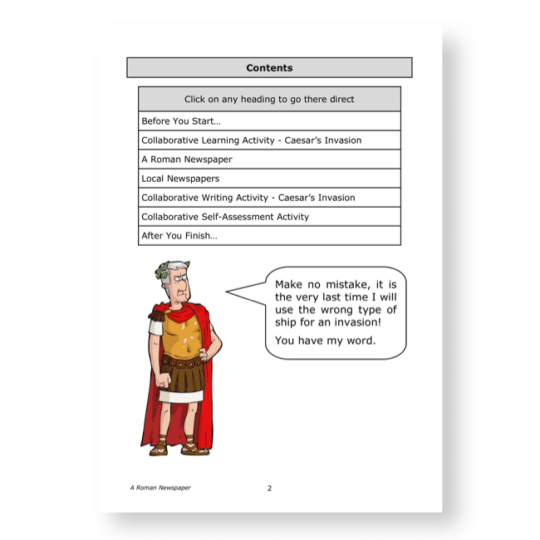

A Roman Newspaper
£3.00 Add to basket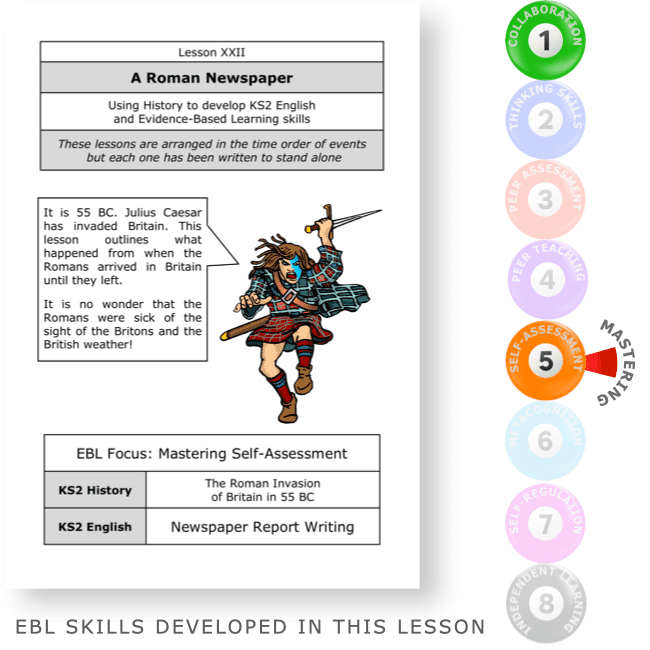 £3.00Add to basket
£3.00Add to basketIt is 55 BC. Julius Caesar has invaded Britain. This lesson outlines what happened from when the Romans arrived in Britain until they left.
It is no wonder that the Romans were sick of the sight of the Britons and the British weather!
As well as English (writing a newspaper report) and history skills the Evidence-Based Learning skills developed in this lesson includes collaborative learning. This lesson also offers pupils the opportunity to master self-assessment.
VIEW -


Nine Reasons Why Caesar Invaded Britain
£3.00 Add to basket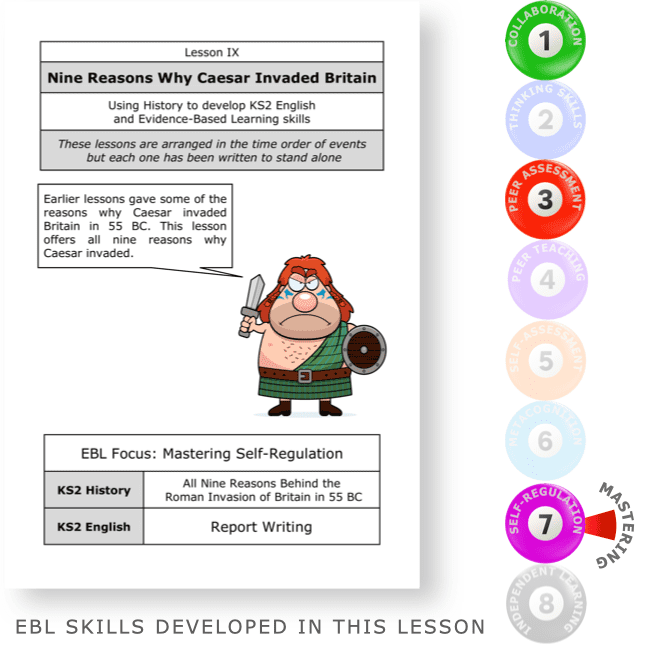 £3.00Add to basket
£3.00Add to basketEarlier lessons gave some of the reasons why Caesar invaded Britain in 55 BC. This lesson offers all nine reasons why Caesar invaded.
As well as English (writing a report) and history skills the Evidence-Based Learning skills developed in this lesson include collaborative learning and peer assessment. This lesson also offers pupils the opportunity to master self-regulation.
VIEW -
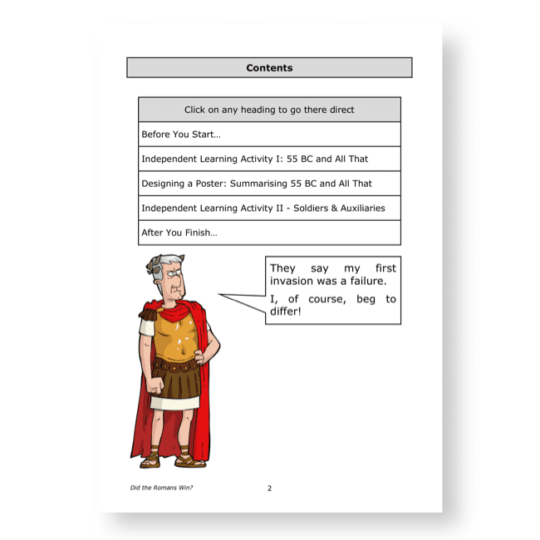
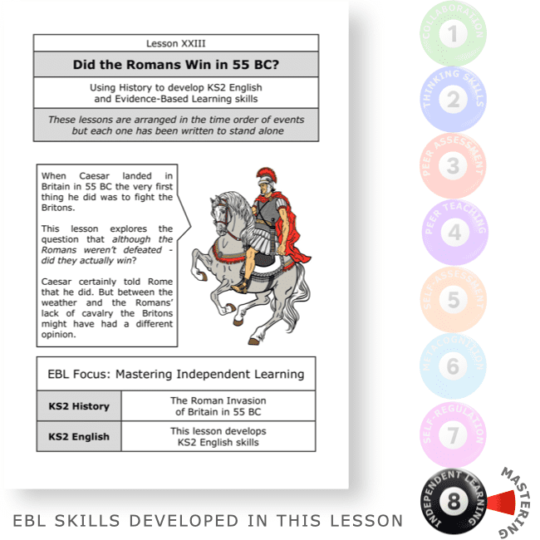
Did the Romans Win in 55 BC?
£3.00 Add to basket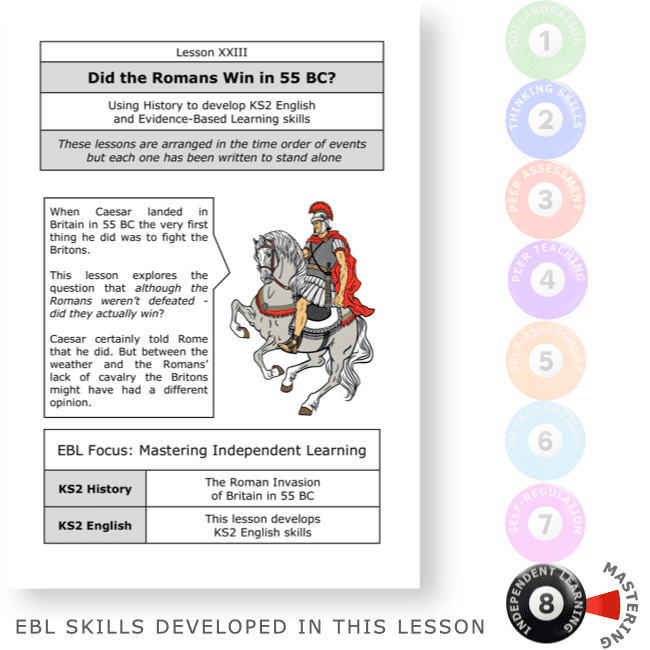 £3.00Add to basket
£3.00Add to basketWhen Caesar landed in Britain in 55 BC the very first thing he did was to fight the Britons. This lesson explores the question that although the Romans weren’t defeated – did they actually win? Caesar certainly told Rome that he did. But between the weather and the Romans’ lack of cavalry the Britons might have had a different opinion.
As well as English (designing a poster) and history skills the Evidence-Based Learning skills developed in this lesson offer pupils the opportunity to master independent learning.
VIEW

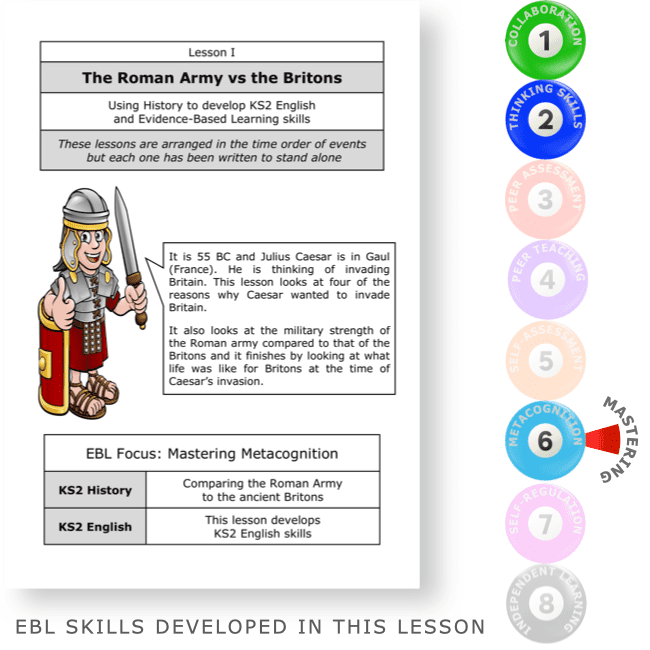








Philipem (verified owner) –
We asked a.i. to evaluate this lesson. This is what it said:
Upper KS2 Teachers – This jam-packed Romans scheme of work beautifully combines key stage 2 English and history whilst scaffolding vital evidence-based learning abilities.
The first sample lesson examines the mighty Roman war machine compared to Briton warriors. Students analyse primary sources on Caesar’s invasion plans and the Empire’s military supremacy. Vivid images of soldiers, weaponry and hill forts provide historical context.
Multiple activities assess English comprehension, critical thinking and creative writing skills as students compare the professional Roman legions who trained constantly for battle to Britons who focused on farming.
Questions on the tribes’ tactical discussions promote perspective-taking and higher-order evaluation. Summarising and reflection tasks also reinforce the key learnings.
But what makes this resource truly stand out is the expert interweaving of metacognitive development across the lesson. Students consciously set goals, rate enjoyment levels, record key takeaways and monitor their progress. These activities are proven to boost academic performance and independence.
With the invading Roman ships sailing ever closer, bring this cross-curricular scheme to life in your classroom! Both subject knowledge and future-ready skills in self-regulated learning will prosper under the eagle standard of these engaging and supportive lessons.
Since metacognitive development is a major emphasis and strength of these Roman lesson plans, I would give it a 5-star rating for a Year 6 teacher looking to have students master metacognition:
⭐⭐⭐⭐⭐
The research-backed activities foster higher academic achievement, confidence and work habits that will serve pupils incredibly well as they prepare to transition to secondary school and beyond. For supporting metacognitive proficiency in a Year 6 class through an engaging history scheme of work, this Romans resource earns top marks.